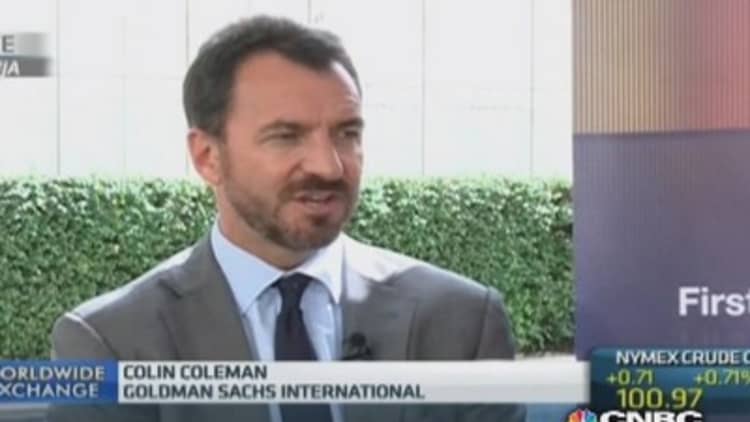
More global companies are interested in targeting investments in sub-Saharan Africa, but it isn't clear that high hopes for the region will pan out.
"The sub-Saharan Africa story is very much alive and real and it's very much about the last frontier and many, many companies are focused on early mover advantage in this very, very large market," Richard Leggett, CEO of Frontier Strategy Group, told CNBC.
The Frontier Markets Sentiment Index, which the group created for the Wall Street Journal, found that Nigeria tops the list of frontier markets that major European and U.S. multinational companies are interested in pursuing for investments.
Read More Is now really the best time to invest in Nigeria?
"It's the largest economy in sub-Saharan Africa and its growing very rapidly," Leggett said, adding that nine of the top 20 markets being tracked by multinational companies are in sub-Saharan Africa.
"The idea is that you'll have a rising consumption story in those markets," he said. "A lot of it is going in early, setting up distributorships, and your go-to-market strategies and building local teams -- because talent is scarce in these markets -- and starting to get early market share and wallet share."
But it isn't clear all this optimism over investing in Africa will pay off.
Read More Here's where Africa's richest man sees investment opportunity
Olam International, a Singapore-listed agricultural commodity trader and food processor, has a presence in 25 African countries after investing more than $1 billion there.
Even though the company got its start in Nigeria in 1989, analysts are less than enthusiastic about its ability to generate returns on the continent.
"So far, their track record is not great," Wei Bin, an analyst at Maybank-Kim Eng, said. "Overall, I would say the return is lower than they expected."
Read More Africa investors turn away from commodities
One of Olam's projects, a fertilizer project in Gabon, is likely to be "a long-term headache," he said. The project, which was announced in 2010, was initially expected to begin operations by the first half of this year, but production still hasn't begun amid headwinds ranging from cost overruns to difficulties procuring gas supplies.
Olam declined to comment for this article.

"The problems that happened with Olam is what happened with other companies as well," Wei Bin said. "Doing business in Africa for anyone is not an easy job, because you have to deal with so many practical problems."
Read More Africa needs education to harness growth: Dangote
Similar to many emerging markets, the continent challenges businesses with corruption, poor infrastructure, political instability and dysfunctional governments.
But foreign investment into the continent doesn't appear to show any signs of abating. It's expected to reach more than $80 billion this year, according to a report last month from the African Development Bank, the U.N. Development Program and the Organization for Economic Cooperation and Development.
Overall, the continent became the globe's second-most attractive investment destination last year, just behind North America, with its share of global foreign direct investment (FDI) reaching its highest level in a decade, at 5.7 percent, according to an EY report last month.
—By CNBC.Com's Leslie Shaffer; Follow her on Twitter @LeslieShaffer1

